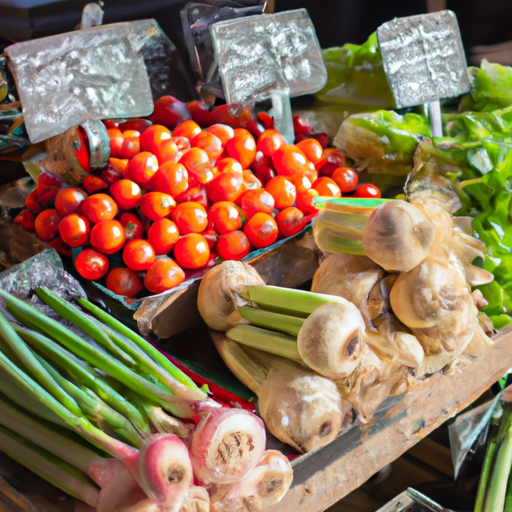You may have heard the theory that humans are natural herbivores, and therefore, a vegan lifestyle is the healthiest option. But how do you know if committing to this way of life is right for you? With so many factors to consider, it can be overwhelming to make such a significant change. Choosing to become vegan isn’t just about what you eat; it’s a whole lifestyle shift that requires dedication and commitment.
- Understanding The Vegan Lifestyle
- Examining Your Values And Goals
- Assessing Your Health And Nutritional Needs
- Considering Environmental And Ethical Factors
- Exploring Vegan Alternatives And Resources
- Making The Transition To A Vegan Lifestyle
- Finding Support And Community
- Final Thoughts: How Do I Know If I Want To Become Vegan
It’s understandable if you’re hesitant or unsure about whether this choice aligns with your values and goals.
In this article, we’ll explore some essential questions to ask yourself when considering fully committing to the vegan lifestyle so that you can determine if it’s the right fit for you.
Understanding The Vegan Lifestyle
Are you curious about the vegan lifestyle? Perhaps you’ve heard of it before, but aren’t quite sure what it entails.
At its core, a vegan diet means avoiding all animal products – this includes meat, dairy, eggs, and even honey.
While some may see this as limiting or extreme, many vegans report feeling healthier and more energetic once they make the switch.
But being vegan is about more than just food choices. It’s often seen as a way to reduce one’s impact on the environment and to combat animal cruelty.
Embracing a completely plant-based lifestyle can be difficult at first, but with time and practice it becomes second nature.
So, do your research, talk to other vegans for support and advice, and above all else: trust yourself!
Examining Your Values And Goals
As we delve deeper into understanding the vegan lifestyle, it’s important to remember that this isn’t just a diet or temporary phase. It’s an entire way of living and thinking that requires dedication and commitment.
Like planting a seed in fertile soil, you must nurture your beliefs and values before they can grow into something strong and fruitful.
One key factor in determining whether or not you’re ready for this transformation is examining your personal values.
Are you passionate about animal rights?
Do you believe in reducing your carbon footprint?
Consider how adopting a plant-based lifestyle aligns with these core beliefs. Not only will it give you a sense of purpose, but also provide opportunities to make meaningful changes in your daily life.
Another aspect to consider when fully committing to veganism is your future aspirations.
What kind of world do you want to live in?
By choosing to consume more plant-based foods and reduce animal product consumption, you are taking an active role in creating a healthier planet for generations to come.
Visualize yourself thriving on a healthy, compassionate diet while making positive impacts on our environment – if this resonates with you, then perhaps the vegan lifestyle is right for you after all!
Assessing Your Health And Nutritional Needs
When it comes to assessing your health and nutritional needs, it’s important to consider nutrition planning and dietary requirements.
Knowing what foods you should be consuming and the vitamins and minerals you need can help you decide if you want to fully commit to a vegan lifestyle.
Nutrition Planning
Deciding whether or not to fully commit to a vegan lifestyle can be overwhelming, but assessing your health and nutritional needs is an essential step in making that decision.
When it comes to nutrition planning, meal prep, and nutrient tracking are key components of maintaining a healthy vegan diet. Meal prepping allows you to plan ahead and make sure you have nutritious options readily available when hunger strikes. Nutrient tracking ensures that you are getting enough protein, iron, calcium, and other vital nutrients necessary for optimal health as a vegan.
Keep in mind that everyone’s nutritional needs are different, so consulting with a registered dietitian may also be beneficial. Remember, taking care of your body through proper nutrition is crucial no matter what lifestyle you choose!
Dietary Requirements
Now that you’ve assessed your health and nutritional needs as a potential vegan, it’s important to understand the specific dietary requirements for this lifestyle.
One concern many people have when transitioning to a plant-based diet is getting enough protein.
Fortunately, there are plenty of plant-based protein sources available such as beans, lentils, tofu, tempeh, and quinoa.
Additionally, proper vegan meal planning can help ensure that you are meeting all of your nutrient needs.
Remember to focus on variety and balance in your meals to receive an array of essential vitamins and minerals.
By understanding these dietary requirements, you can confidently make informed decisions about your nutrition as a vegan.
Considering Environmental And Ethical Factors
If you’re considering committing to the vegan lifestyle, it’s important to take into account environmental and ethical factors.
One major factor is your carbon footprint – by adopting a plant-based diet, you can significantly reduce your impact on the environment. Animal agriculture is one of the leading causes of greenhouse gas emissions, deforestation, and water pollution. By choosing to consume only plant-based foods, you can make a positive impact on the planet.
Another important factor to consider when going vegan is animal welfare. Many people choose this lifestyle because they don’t want to contribute to the suffering of animals raised for food production. Adopting a vegan lifestyle means that you no longer support industries that engage in factory farming or other forms of animal exploitation. This allows individuals to align their actions with their values and feel good about their choices.
When making the decision to go vegan, it’s important to think beyond just yourself and consider how your actions impact others around you – both humans and animals alike.
By reducing your carbon footprint and supporting animal welfare through a plant-based diet, you can create a more sustainable future for all beings on Earth.
So if these issues resonate with you, perhaps it’s time to fully commit to the vegan lifestyle!
Exploring Vegan Alternatives And Resources
Considering environmental and ethical factors is an important step in determining whether or not to commit to the vegan lifestyle. However, it’s also essential to consider your own health and well-being.
Luckily, there are plenty of options for plant-based protein sources that can help you maintain a healthy diet while adhering to a vegan lifestyle. Some examples of vegan protein sources include legumes such as lentils and chickpeas, nuts like almonds and cashews, tofu, tempeh, quinoa, and even some vegetables like broccoli and spinach.
It’s crucial to work with a registered dietician or nutritionist when transitioning to a vegan diet to ensure you’re getting all the necessary nutrients your body needs. Additionally, learning about plant-based meal planning can make the transition much smoother by giving you ideas for creative dishes that incorporate these protein sources into tasty meals.
Exploring vegan alternatives and resources is key when deciding if committing to this lifestyle is right for you. With proper education on how to get enough protein through plant-based foods, it becomes easier to fully embrace veganism without compromising one’s health.
So take time researching online recipes or cookbooks featuring delicious plant-based meals that will keep you feeling satisfied while nourishing your body!
Making The Transition To A Vegan Lifestyle
So, you’re considering fully committing to the vegan lifestyle? Well, congratulations on being one step closer to saving our planet! Just kidding. But seriously, transitioning to a vegan lifestyle is no easy feat. It requires discipline and commitment. So how do you know if it’s right for you?
One of the first things to consider is meal planning. Being a vegan means cutting out animal products entirely from your diet, which can be challenging at first when trying to figure out what meals will satisfy both your taste buds and nutritional needs.
However, fear not!
There are countless resources available online that offer delicious plant-based recipes and even meal prep services tailored specifically for vegans. With some research and practice in the kitchen, you’ll soon find that eating vegan doesn’t have to mean sacrificing flavor or variety.
Of course, there may also be social challenges as you make this transition. Friends and family who aren’t familiar with the vegan lifestyle may question your decision or struggle with finding appropriate dining options when spending time together.
But don’t let this discourage you – use it as an opportunity to educate them about why going vegan is important to you and perhaps even inspire them to make healthier choices themselves.
Surround yourself with like-minded individuals by joining local vegan groups or attending events where you can connect with others who share similar values.
Ultimately, deciding whether or not to commit fully to the vegan lifestyle takes introspection and self-awareness. Take some time to reflect on your values and priorities regarding health, environmentalism, and animal welfare before making any big changes.
And remember, transitioning doesn’t have to happen overnight – take small steps towards incorporating more plant-based foods into your diet and see how it feels for you personally. Who knows? You might just discover a whole new world of culinary delights while doing something good for yourself and the planet!
Finding Support And Community
If you’re considering fully committing to the vegan lifestyle, finding support and community can make a big difference.
It’s not always easy to go against the norm, especially if those around you don’t understand or accept your decision. But remember that you are not alone! There are many vegans out there who share your values and beliefs.
One way to find vegan friends is by joining online communities. Social media platforms like Facebook and Instagram have groups dedicated to all things vegan, from recipes and product reviews to activism and social justice issues.
You can connect with people who share your interests and get advice on everything from meal planning to dealing with non-vegan family members. And if you’re feeling adventurous, you might even meet up with some of these new friends in person for potlucks or other events.
Remember that going vegan isn’t just about what you eat; it’s also about living in alignment with your values. Finding support and community can help keep you motivated when times get tough, and remind you why this lifestyle is worth pursuing.
So take advantage of the resources available to you, both online and offline, as you embark on this exciting journey towards a more compassionate world.
Final Thoughts: How Do I Know If I Want To Become Vegan
In conclusion, deciding to commit to a vegan lifestyle can be a personal and transformative journey. It requires self-reflection, consideration of values and goals, assessing nutritional needs, and exploring alternatives.
Much like planting a garden, it takes time, patience, and care to cultivate this way of living. But just as tending to the garden yields beautiful and bountiful results, committing to a vegan lifestyle can lead to better health, reduced environmental impact, and alignment with ethical beliefs.
So take the first step towards sowing the seeds of change within yourself and join the vibrant community of individuals who have found purpose in living compassionately towards animals and our planet.

